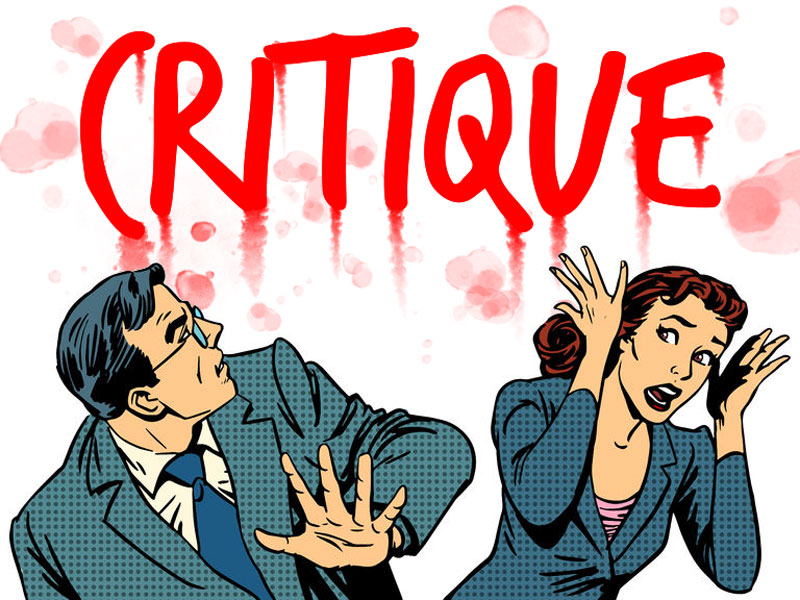“I just love being criticized”.
Not a phrase you hear often…

Yet, of course, we do need to hear criticism sometimes, in order to move forward and grow.
In this week’s Parsha, Moshe reviews the Torah with the Jewish people, and reprimands them for their sins.
Rebbetzin Esther Jungreis, of blessed memory, explains:
“He begins by alluding to those sins by recalling the places where they occurred, but he does not detail them explicitly until later in the Book. For example, instead of specifically referring to the grievous sin of the Golden Calf, he simply states, “di zahav – much gold.” Through this method of criticism, he…preserves their dignity…”
Moshe is teaching us an important lesson here. A lot of times, when someone does the wrong thing, they are aware of it on some level, and may already feel bad about it. By jumping into harsh criticism, (even with good intentions), the teacher/leader/parent/well-meaning criticizer may cause them to shut down, at which point, the person being criticized can’t really hear the message anymore.
Conversely, if we give the person a gentle nudge, using our words carefully and tactfully, we can encourage the person to realize the problem for themselves. When one feels cared for (as opposed to attacked); when a criticism is gentle, the person is less likely to go on the offensive, and has the emotional space to think and process the implications of the message.
For example, when speaking to my son, using a phrase such as “Do NOT speak to your brother that way” is a lot less effective then: “Is that a good way to ask for what you want?”
The latter message hints that he may want to re-assess his actions, but it is not accusatory.
Truthfully, most people don’t like being criticized, even when it’s a good idea to contemplate their actions. Moshe shows us that when it comes to criticism, a gentle nudge can work wonders for self-reflection, but a harsh push can just push someone away.
It’s true that Moshe eventually does go over the sins in detail, but by alluding to them more gently prior to this, the people are more mentally prepared to hear about them. Their minds are more open.
Open minds lead to open ears.
Defensiveness leads to closed ears.
Remember not to jump on someone with harsh criticism, unless you’re prepared to have it go in one ear, and out the other.
Shabbat Shalom,
Danielle Altonaga and the JET Team


So well said, Danielle! Thank you and Shabbat Shalom
The generation that was deserving of criticism has died out. It’s the next generation that will be entering israel. There has to be some resentment for Moses as a result. However there’s also gratitude for living through all the hardships and finally entering the ‘promised land’. With that context I see why criticism needed to be measured. If we don’t learn from history we are likely to repeat it.
Thanks for the great message!!